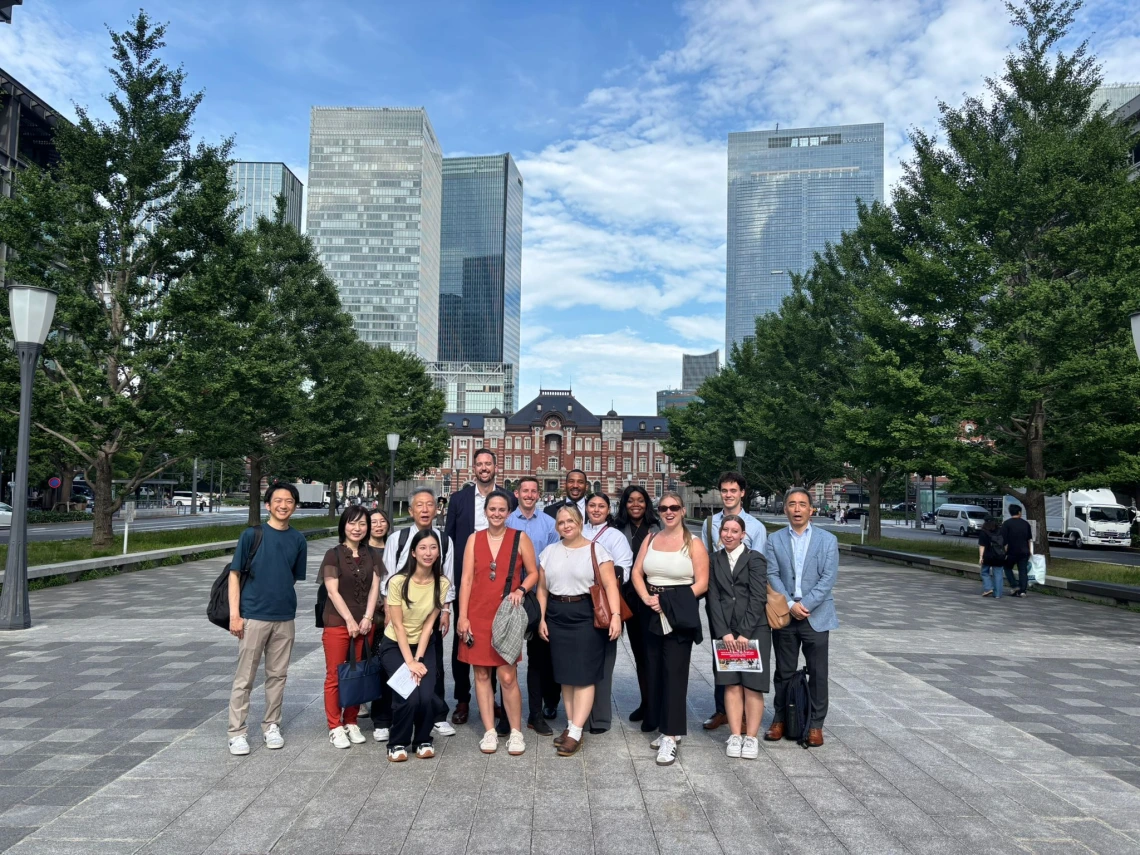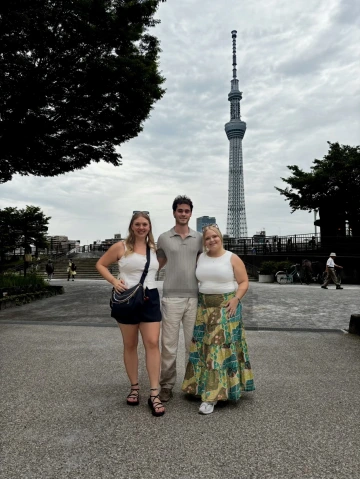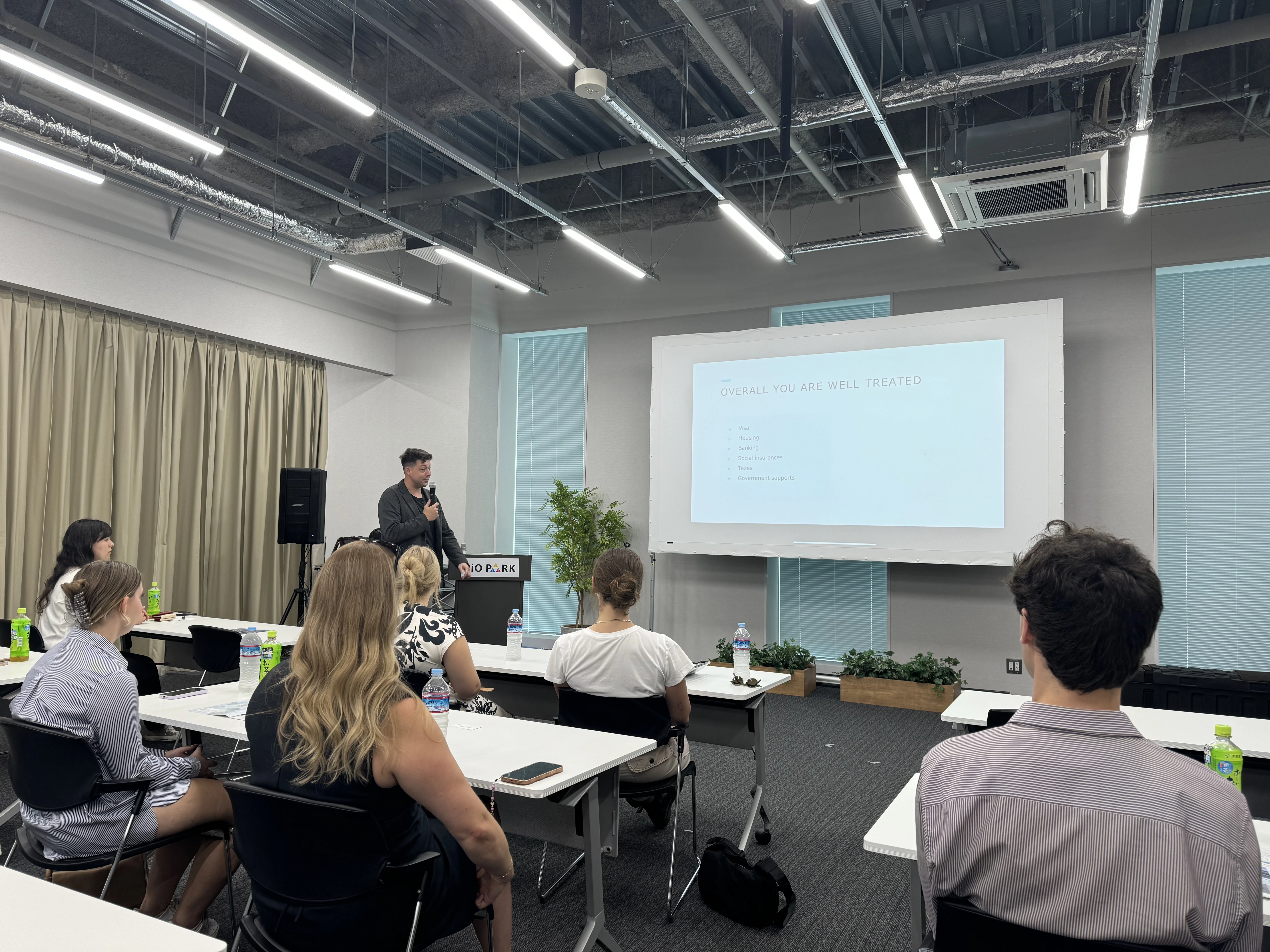CAPLA Students Explore Smart Cities and Global Planning Innovation in Japan

Last summer, a group of CAPLA students traveled across Japan for an immersive 18-day study abroad
experience focused on sustainable development and smart cities.
Led by Brian Bidolli, lecturer in planning and real estate development, the “Cities of the Future: Japan” program offered a rare opportunity to study cutting-edge urban design while visiting Tokyo, Osaka and Kyoto.
“This program offered students a rich blend of academic, professional and cultural experiences designed to deepen their understanding of smart and sustainable urban development,” Bidolli said.

Joy Kuhlo said that participating was an incredible learning opportunity as an MRED/MSUP student.
“Immersion into the urban landscape allowed me to notice details and practices I would have never seen otherwise,” she said. “Experiencing non-Western approaches to planning firsthand reminded me how much there is to learn from value-based systems like those in Japan—where design, culture and community are so deeply intertwined.”
From June 11–28, students earned credits while participating in lectures, professional site visits and cultural excursions. The itinerary featured stops at institutions such as the Tokyo Metropolitan Government, the Japan International Cooperation Agency (JICA), Smart City Institute Japan and the Osaka City Digital Management Office.
In Tokyo, students explored how the capital city is evolving into a global smart city through presentations
and walking tours in the Nishi-Shinjuku and Otemachi-Marunouchi-Yurakucho districts. The group also toured Haneda Innovation City and participated in interactive lectures and project work sessions led by Bidolli.
“Visits to cutting-edge smart city sites and meetings with local planners allow students to see theory in action,” Bidolli said.
The second half of the program took students to Osaka, where they attended Expo 2025, a global exposition themed around designing future societies for our lives. The visit offered a capstone experience that connected classroom theory with international planning initiatives.
Cultural learning was also a central focus, with excursions to Kyoto, Nara and Hiroshima, including the Hiroshima Peace Memorial. Throughout the program, students were challenged to think critically and comparatively about planning practices around the world.
“Immersion in Japan’s daily life—from transportation systems to traditional crafts—helped students appreciate the value of diverse planning models and lifestyles,” Bidolli said.
The trip concluded with student project presentations and a cultural reflection exercise in Osaka. By
blending academic content with real-world experiences, “Cities of the Future: Japan” helped CAPLA students build cultural literacy and expand their global perspective on urban development.
“The experience of being immersed in a different planning context is something you just can’t replicate in the classroom,” Kuhlo said. “Look into funding opportunities, be vocal about your needs and know that even if it takes some work, it’s absolutely worth it.”
Find more information about CAPLA’s study abroad programs here.






